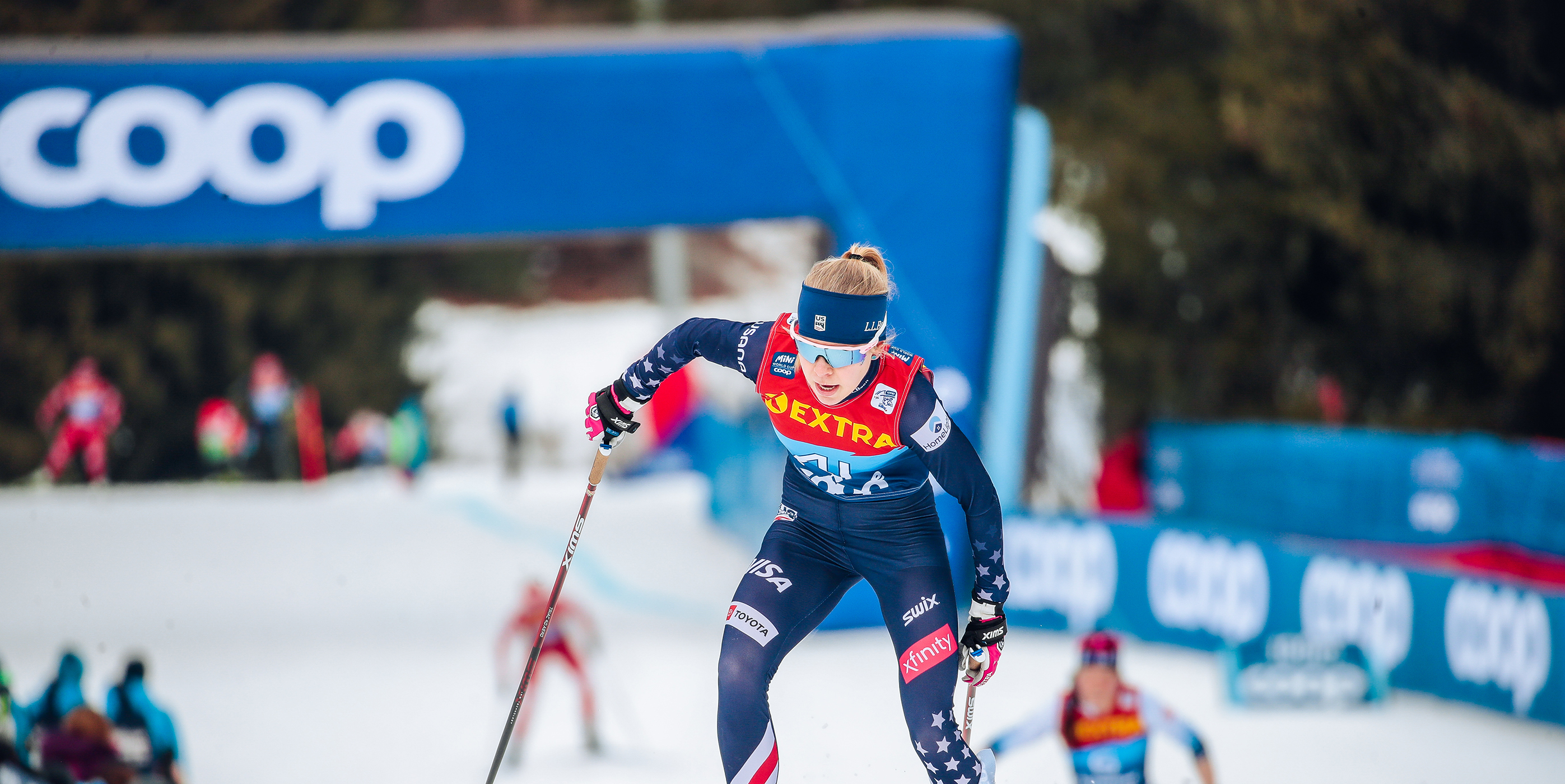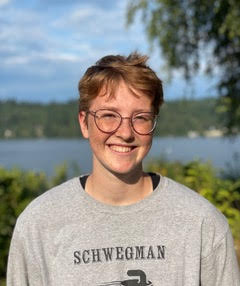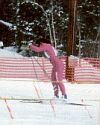World Cup Report: Tour de Ski Stages 5 and 6 Recap

In the final stages of the Tour de Ski, athletes gave everything they had to advance in the standings as much as possible. With a challenging distance classic race and the infamous final skate climb up Alpe Cermis, this was no easy task. Race leaders Natalia Nepryaeva of Russia and Johannes Hoesflot Klaebo of Norway sought to defend their positions—Nepryaeva entered the races with a 34-second lead, while Klaebo was ahead by 1:03.
Val di Fiemme
- January 3: Classic 10/15km
- January 4: Skate 10km (hill climb)
Classic Distance
In less-than-winter-wonderland conditions in Val di Fiemme, the men’s and women’s fields raced six and four laps of a 2.5km racecourse on Monday. The weather was warm yet again with air temperatures at around 39ºF, but packed snow conditions made for relatively fast racing. Hoping to make up time after her unfortunate fall in Saturday’s sprints, American Jessie Diggins led out the field, but was unable to stay at the front and lost places in the first several kilometers. This race in particular has been historically challenging for Diggins, and this year was no different. Johanna Hagstroem of Sweden drove the pace early on, going hard to pick up the first bonus points before fading to the back. Her teammate Ebba Andersson took over the lead, trading off with Finnish skiers Krista Parmakoski and Kerttu Niskanen. By the 7.5 kilometer mark, a leading group of six had formed, consisting of Andersson, Parmakoski, Nepryaeva, Heidi Weng of Norway, Katharina Hennig of Germany, and Teresa Stadlober of Austria. With under a kilometer to go, Nepryaeva attacked on a punchy climb, using a powerful stride to create a gap and splintering the pack in the process. No one came close to matching her effort, and she broke away to win the race by 3.7 seconds, with Weng finishing second, Parmakoski placing third, and the rest of the group rolling in a few seconds back. Diggins held on to take 13th place as the top American, with Katharine Ogden next in 31st, Novie McCabe 36th, and Sophia Laukli 39th. Alayna Sonnesyn rounded out the American starters, finishing 51st.
In typical fashion, the men's race started much slower. Although no one was going particularly hard early on, positioning proved important nonetheless when two athletes crossed legs on a downhill, taking out a significant portion of the field in the process. Norwegian Erik Valnes claimed the first bonus points with Klaebo behind in second, but by the second bonus checkpoint it was Klaebo in first. Just over halfway through the race, an attack from Iivo Niskanen of Finland finally spread out the field—the only skier who could match his pace was Klaebo. The two opened a near 15-second gap on third place by the 11km mark, but when Klaebo picked up the pace, Niskanen failed to stick with him and found himself in no man’s land. With one kilometer to go, it was clear that Klaebo was on another level than everyone else in the field; his ever-increasing gap was up to 16 seconds. At the finish, Klaebo’s victory came 20.8 seconds before Niskanen crossed the line in second place. The all-Russian group of Alexey Chervotkin, Denis Spitsov, and Alexander Bolshunov duked it out for third place, finishing in that order. Gus Schumacher and Zak Ketterson were the lone racers in a dwindling group of American athletes, placing 50th and 59th respectively.
Freestyle Distance
In the final race of the Tour de Ski, athletes faced the notoriously difficult climb up Alpe Cermis, winding their way through the valley before a nonstop climb in the last three kilometers. Conditions were similar to Monday’s with temperatures slightly above freezing and relatively packed snow. In the women’s race, the standings at the start of the day had Nepryaeva leading by 1:12 over Andersson, with Diggins another 30 seconds back in sixth place. Diggins went straight to the front at the start of the race, opting to keep the pace relatively easy for the first few kilometers. By the time the field reached the base of the climb, it was Weng and Andersson pushing the pace with Parmakoski trying to follow. Andersson led up most of the climb, with Weng looking comfortable sitting behind her. At 9.2km, the two had an 18-second gap over Nepryaeva, while Parmakoski had faded to the next group at +35 seconds. Also in that group was Laukli, who started the climb in 11th place but was now sitting in the group of 4th-6th place, along with Delphine Claudel of France. With under a kilometer to the finish, the grade of the hill flattened out enough for athletes to V2—this proved to be a crucial tactical point in the race for many. Weng took the opportunity to come around Andersson, and after an impressive effort Claudel was able to pass Nepryaeva and move into third place. Weng took the win on the day with seven seconds over Andersson, and Claudel rounded out the podium in third. Nepryaeva finished fourth at 32 seconds back from Weng, close enough to maintain her overall title and win the Tour. Andersson’s strong performance landed her in second overall, with Weng also on the podium in third place. In the points standings, Hagstroem finished first, with Diggins second and Nepryaeva third. Laukli was the top placing American of the day in a career-best performance of fifth place, followed closely by McCabe in seventh (also a career best). Diggins’ 15th place was enough to take eighth place overall, while Sonnesyn came in 36th in the stage. Several American women didn’t start the race, including Katharine Odgen, who is heading to US Nationals, and Julia Kern and Hailey Swirbul, who both got sick during the Tour. With so many variables surrounding the races at the Tour as well as the enormous toll that six days of racing takes on your body, it’s no wonder that several racers came down with colds. Sonnesyn commented on these challenges: “The courses on the Tour are very challenging, not to mention all the travelling, foreign culture, and chaotic energy that’s around the World Cup.”
The men’s race was equally exciting with close finishes and different results than we’ve seen in recent stages. Klaebo began the stage with a lead of over two minutes on second place, but because the climb in Val di Fiemme is not suited to Klaebo’s usual strengths in sprinting and tactics he had to work hard to maintain it. Klaebo, Bolshunov, and Valnes all stuck to the front of the field in the flat first kilometers with Valnes taking the first bonus points. At the start of the climb, Niskanen led the race, though he wasn’t pushing the pace quite yet and the field stayed largely together. As the hill grew steeper, it was Sjur Roethe of Norway at the front, breaking away and splintering the pack in the process. Spitsov followed him, and the two created a gap on the rest of the field. By 9.2km, they had an 18-second lead over the next group that included Bolshunov, Klaebo, and Friedrich Moch of Germany. As the hill flattened out, Roethe was able to open a small yet critical gap on Spitsov to take the victory. Spitsov finished second 2.4 seconds later, with Moch placing third at 18.9 seconds back, Klaebo holding on for fifth place, and Bolshunov close behind in seventh. Niskanen finished 12th, posting a fast enough time to keep his third place position overall. Klaebo and Bolshunov also preserved their spots on the podium, finishing first and second respectively. In the points standings, Klaebo placed first, Valnes second, and Bolshunov third. Zak Ketterson was the lone American racer on Tuesday after Schumacher dropped out from a lingering cold; Ketterson started strong with a midpack position but faded to finish in 48th place. Other American athletes who are less focused on distance racing dropped out purposely after the events in Oberstdorf, including Ben Ogden and Luke Jager.
Looking Ahead
The next World Cup races were scheduled to take place in Les Rousses, France, but have since been cancelled due to COVID-19 concerns. Assuming it does not get cancelled as well, the next races on the calendar will take place in Planica, Slovenia, with a classic sprint on January 22 and a skiathlon on the 23rd. This would be the last World Cup event before the Beijing Olympics begin on February 4th.
 |
About the author... Erika Peterson is a senior at South High School in Minneapolis. She skis for Loppet Nordic Racing as well as her high school team. When she’s not out on the trails, you can find her listening to Lorde and creating oatmeal recipes. |

